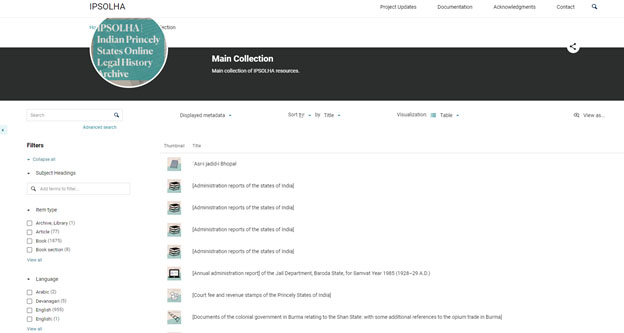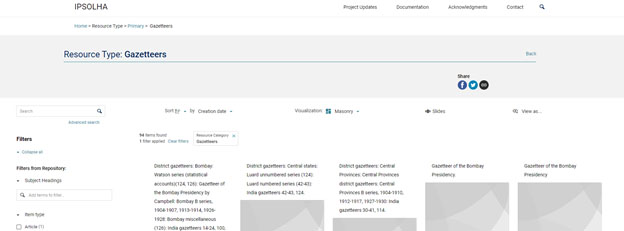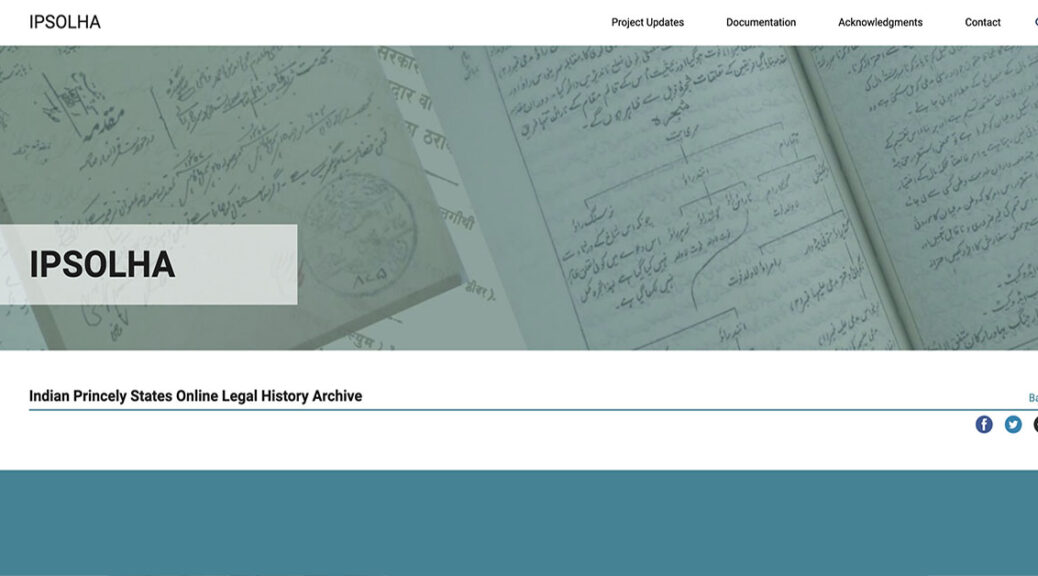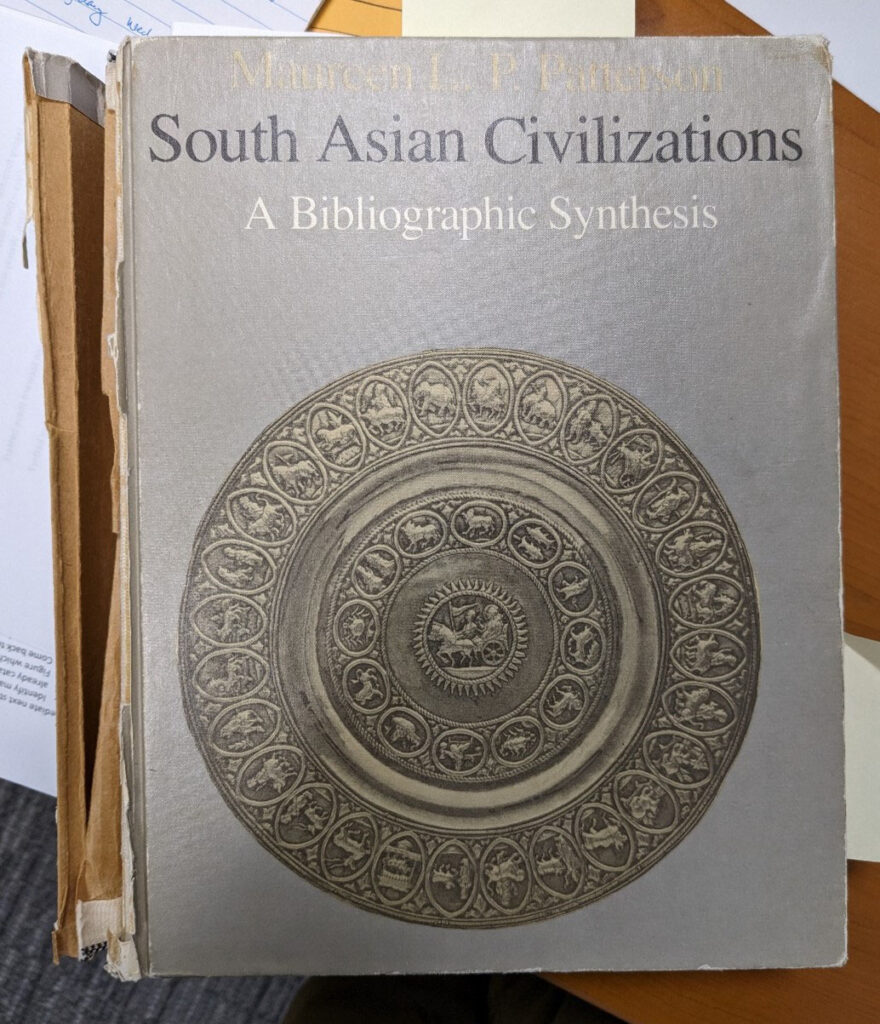Read, hot & digitized: Librarians and the digital scholarship they love — In this series, librarians from the UT Libraries Arts, Humanities and Global Studies Engagement Team briefly present, explore and critique existing examples of digital scholarship. Our hope is that these monthly reviews will inspire critical reflection of, and future creative contributions to, the growing fields of digital scholarship.
As a librarian, I can’t help but love a good bibliography.
The first professional book I purchased after getting my first bibliographer job was Maureen Patterson’s South Asia Civilizations: a Bibliographic Synthesis. Over the course of many years, Patterson, the former Bibliographer of the South Asia Collection at the University of Chicago, enlisted the help of a small army of graduate students and library staff to identify and succinctly document citations of scholarly books and articles organized in the ways that academics think. Arranged by broad chronological and thematic categories, Patterson’s Bibliography was a life-saver for me while in graduate school. Whenever I ventured into unknown territory as a grad student, the Bibliography was the perfect launching pad, giving me recommendations to begin learning. Since then, as a librarian often called upon to help people in areas less familiar to me, I’ve turned to Patterson’s Bibliography over and over to learn, explore, and discover. My personal copy, now tattered and torn but always with lots of post-it notes and flags pointing me to particular areas, reveals just how helpful this work has been to me.
And yet, as a print source, published only once in 1981, it is dated. Not just in terms of content—the way we think about South Asia has certainly changed since 1981!—but also in terms of its static functionality. Bibliographies are essentially curated lists of citations, that is, of metadata (“data about other data”). The intersection of online metadata and citations, namely in and through tools such as citation managers such as Endnote, Procite, RefWorks, and Zotero, is fertile digital humanities ground wherein we can learn about new subject areas.
For example, I recently learned of a new bibliography for the study of legal history, the Indian Princely States Online Legal History Archive, or IPSOLHA. IPSOLHA takes up the challenge of complex histories from the colonial period when there were “hundreds of semi-sovereign, semi-autonomous states across the South Asian subcontinent. Varying in size and authority, these states (sometimes referred to as native, feudatory, or zamindari states) were incubators for innovative legal, administrative, and political ideas and offered a unique counterbalance to the hegemony of British rule. Yet despite their unique history, studying these states is complicated by the scattered nature of their archival remains.” IPSOLHA’s intervention is to use the tools of the digital humanities “to build a database and collection of references to facilitate historical study of these states, with a special focus on their legal and administrative history.”

Like Patterson’s Bibliography, IPSOLHA is built upon student labor to investigate and document publications; but unlike Patterson, IPSOLHA has used the dynamic citation manager tool, Zotero, to gather relevant references from both online and analog resources which are then uploaded into a database. The database sorts and presents the references in static thematic categories, but also in ways that can be determined by the researcher, including by type, language, location and more. At the time of this writing, IPSOLHA is primarily a discovery tool (like Patterson), but in time, the hope is that the discovery will lead to digitization projects and more online full-text access for researchers.

IPSOLHA is a fabulous place for both beginner researchers to get started, but also for more advanced scholars of princely India to find hitherto unknown source materials. I encourage all to dive in and explore the possibilities.
Learn more about:
- Citation managers (such as Zotero) through the “Research Organization with Citation Managers” LibGuide
- The use of citation managers for South Asian Studies through South Asian Bibliographies created using Zotero
- Indian Princely States through this Oxford Research Encyclopedia of Asian History entry by Angma Jhala, “The Indian Princely States and Their Rulers” (see especially the bibliography!)



